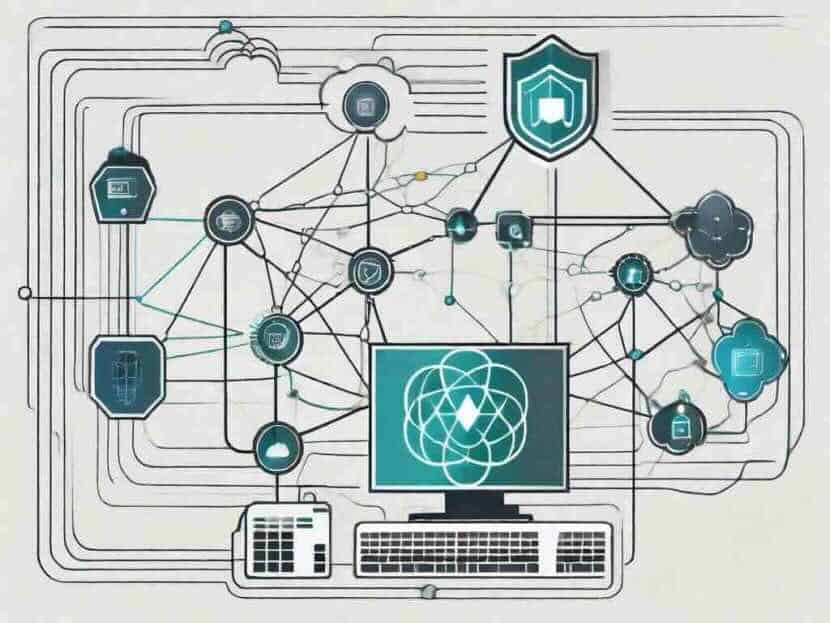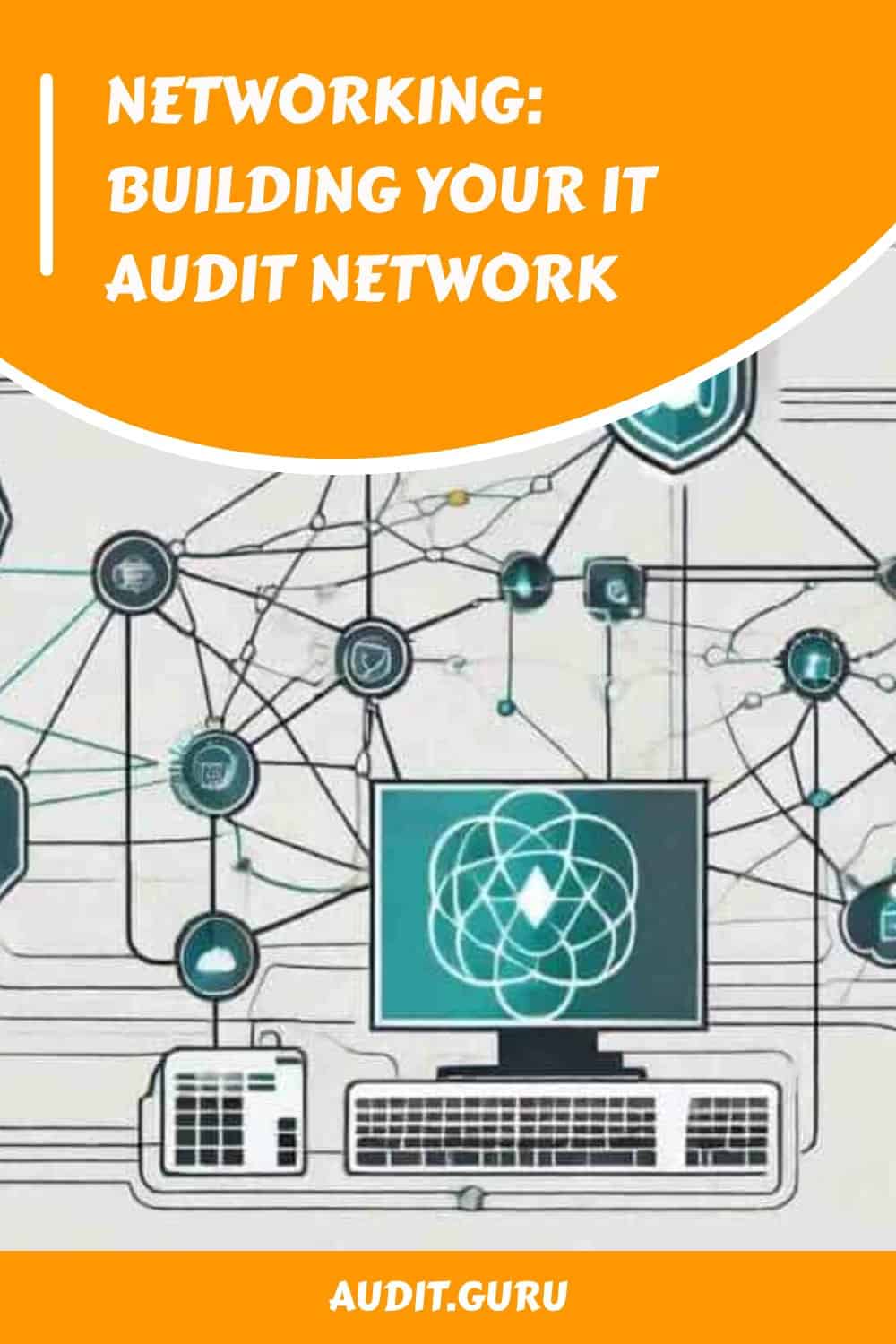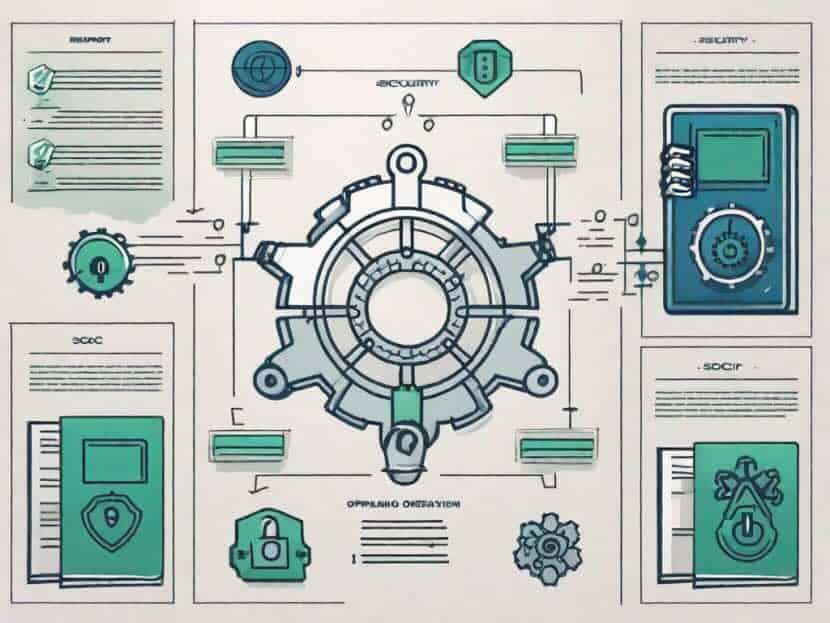- Networking and Professional Development: Building Your IT Audit Network
- Importance of networking in the IT audit profession
- Tips for effective networking online and offline
- Leveraging professional associations and events
- Continuous learning and improvement
- Setting up a personal development plan
- Transitioning into an IT Audit Role
- Preparing for job interviews and role changes
- Success stories and lessons from experienced IT auditors
- Leveraging Professional Development Opportunities to Expand Your Network
- The Power of Networking for IT Auditors
- How to Reach Out to New Connections in the IT Audit Space
- Crafting Your Professional Profile to Attract the Right Connections
Networking and Professional Development: Building Your IT Audit Network
In the world of IT audit, networking, and professional development are key to success. As an IT auditor, it is essential to have a strong network of industry professionals and continuously invest in your own growth and improvement. This article will explore the importance of networking in the IT audit profession and provide tips for effective networking both online and offline. We will also discuss the benefits of leveraging professional associations and events, the importance of continuous learning, and staying updated with IT audit trends and changes.
Importance of networking in the IT audit profession
Networking plays a crucial role in the IT audit profession. It provides opportunities for professional growth, knowledge-sharing, and career advancement. Connecting with other IT auditors and industry experts allows you to gain valuable insights, access new job opportunities, and stay updated with emerging trends and best practices.
Networking also helps in building a strong support system. IT auditors often face similar challenges and can benefit from discussing these challenges with their peers. Through networking, you can find mentors who can guide you in your career and provide valuable advice based on their own experiences.
One of the key benefits of networking in the IT audit profession is the opportunity for professional growth. You can expand your knowledge and skills by attending industry conferences, seminars, and workshops. These events often feature expert speakers who share their insights and experiences, giving you a broader perspective on the field of IT auditing.
Furthermore, networking allows you to stay updated with the latest developments in technology and regulations. Conversation with fellow IT auditors lets you learn about new tools, methodologies, and frameworks that can enhance your audit processes. This knowledge can give you a competitive edge in the industry and make you a valuable asset to your organization.
In addition to knowledge-sharing, networking also opens doors to new job opportunities. By establishing connections with professionals in your field, you increase your chances of being referred to job openings that may not be publicly advertised. Many organizations rely on referrals and recommendations when hiring, and having a strong network can significantly increase your chances of landing your dream job.
Networking also provides a platform for building your personal brand and reputation in the IT audit profession. By actively participating in professional associations and online communities, you can showcase your expertise and establish yourself as a thought leader in the field. This can lead to speaking engagements, writing opportunities, and invitations to contribute to industry publications, further enhancing your professional profile.
Lastly, networking helps in building long-lasting relationships with like-minded professionals. You can form connections beyond professional interests by attending networking events and engaging in meaningful conversations. These relationships can provide emotional support, collaboration opportunities, and a sense of belonging within the IT audit community.
In conclusion, networking is an essential aspect of the IT audit profession. It offers numerous benefits, including professional growth, access to new opportunities, knowledge-sharing, and the establishment of a strong support system. By actively engaging in networking activities, you can enhance your career prospects and stay ahead in the ever-evolving field of IT auditing.
Tips for effective networking online and offline
To network effectively, you need to be proactive and approachable. Here are some tips to improve your networking skills:
- Attend industry events: Make an effort to attend conferences, seminars, and workshops related to IT audits. These events provide excellent opportunities to meet industry professionals and expand your network. Participate in panel discussions, ask questions, and engage in conversations to make a lasting impression.
- Join professional associations: Joining professional associations such as ISACA (Information Systems Audit and Control Association) can significantly boost your networking efforts. These associations offer networking events, webinars, and forums where you can connect with like-minded professionals and share knowledge.
- Utilize social media: Platforms like LinkedIn and Twitter are valuable tools for networking in the digital age. Connect with IT auditors, join relevant groups, and actively participate in discussions. Share insightful content and engage with others’ posts to expand your reach and establish yourself as a thought leader in the field.
Networking is a crucial aspect of professional development, whether it’s done online or offline. By actively engaging with others in your industry, you can gain valuable insights, build relationships, and open doors to new opportunities. Here are some additional tips to further enhance your networking skills:
1. Attend local meetups and networking events: In addition to industry events, consider attending local meetups and networking events specific to IT audit. These gatherings provide a more intimate setting where you can have meaningful conversations and establish connections with professionals in your area. Don’t underestimate the power of face-to-face interactions.
2. Volunteer for speaking engagements: Offer to speak at industry conferences or local events on topics related to IT audit. This not only positions you as an expert in your field but also gives you an opportunity to showcase your knowledge and connect with attendees who are interested in your expertise. Speaking engagements can be a great way to expand your network and gain visibility within the industry.
3. Engage in online communities: In addition to social media platforms, various online communities and forums are dedicated to IT audits and related topics. Join these communities and actively participate in discussions. Share your insights, ask questions, and offer help to others. By consistently contributing valuable content, you can establish yourself as a trusted and knowledgeable professional in the online space.
4. Seek mentorship opportunities: Look for experienced professionals in the field of IT audit who can serve as mentors. A mentor can provide guidance, support, and valuable connections to help you advance your career. Reach out to potential mentors through professional associations, networking events, or even through social media platforms. Remember, mentorship is a two-way street, so be prepared to offer your own expertise and assistance in return.
5. Stay updated with industry trends: Networking is not just about making connections; it’s also about staying informed and relevant in your field. Stay updated with the latest trends, technologies, and best practices in IT audit. This knowledge will make you a valuable resource for others, help you engage in meaningful conversations, and establish yourself as a thought leader.
Remember, networking is an ongoing process. It requires consistent effort, genuine interest in others, and a willingness to give back to the community. By implementing these tips and continuously expanding your network, you can create a strong professional support system and open doors to new opportunities in the field of IT audit.
Leveraging professional associations and events
Professional associations and events provide a wealth of opportunities for expanding your IT audit network. Membership in organizations like ISACA or the Information Systems Security Association (ISSA) can connect you with a wide range of professionals in the industry.
Attending conferences and seminars allows you to meet industry leaders, learn about emerging technologies, and gain insights into current IT audit trends. Take advantage of these events by actively participating in sessions, engaging with speakers and fellow attendees, and exchanging contact information.
Moreover, professional associations often offer exclusive resources and publications that can further enhance your knowledge and expertise in IT audit. These resources may include research papers, case studies, and best practice guidelines, which can serve as valuable references in your professional journey.
Additionally, consider volunteering for association committees or speaking at industry events. By actively participating in these activities, you enhance your networking opportunities and showcase your expertise and leadership skills. Volunteering for committees allows you to contribute to the development of industry standards and practices while speaking at events positions you as a thought leader in the field.
Furthermore, professional associations often organize specialized training programs and workshops for their members. These programs provide an excellent opportunity to expand your skillset and stay updated with the latest advancements in IT audit. By participating in these training programs, you can acquire new knowledge and techniques that can be applied to your work, making you a more valuable asset to your organization.
Another benefit of professional associations is the chance to join specialized interest groups or communities within the organization. These groups focus on specific areas of IT audit, such as cybersecurity, data analytics, or compliance. By joining these groups, you can connect with like-minded professionals, exchange ideas, and collaborate on industry-specific challenges.
Lastly, professional associations often host networking events and social gatherings, providing a relaxed environment for building relationships with fellow IT audit professionals. These events can range from informal meetups to formal dinners or conferences. Attending these gatherings allows you to establish meaningful connections, share experiences, and gain insights from others in the field.
Continuous learning and improvement
In the ever-evolving field of IT audit, continuous learning is crucial for staying relevant and effective in your role. Understanding and adopting new technologies, methodologies, and regulations is essential to ensure the success of your audit engagements.
To stay updated, dedicate time to research and study industry publications, whitepapers, and reports. By immersing yourself in the latest research and insights, you can better understand emerging trends and best practices in IT audit. This knowledge will enhance your expertise and enable you to provide valuable recommendations and insights to your clients or organization.
Attending webinars, training programs, and workshops is another effective way to enhance your skills and stay up-to-date with the latest developments in IT audit. These learning opportunities provide a platform for industry experts to share their knowledge and experiences, allowing you to gain valuable insights and practical tips. Additionally, networking with other professionals in the field can help you build connections and exchange ideas, further enriching your learning experience.
Engaging in self-paced learning through online platforms, such as Coursera or Udemy, can be a convenient and flexible way to explore specialized areas of IT audit. These platforms offer a wide range of courses and certifications that cater to different skill levels and interests. Whether you want to deepen your understanding of cybersecurity, data analytics, or IT governance, you can find relevant courses that allow you to learn at your own pace and convenience.
Creating a personal development plan can structure and guide your continuous learning journey. Start by identifying areas for improvement based on your current skill set and the evolving needs of the IT audit profession. Set specific goals that align with these areas and establish a timeline for achieving them. This could include obtaining industry certifications, attending specific training programs, or completing online courses.
It is also important to consider developing your soft skills alongside your technical knowledge. Effective communication, critical thinking, and problem-solving abilities are essential for an IT auditor to engage with stakeholders and provide valuable insights effectively. Seek opportunities to enhance these skills through workshops, seminars, or even by taking on challenging projects that require you to collaborate with cross-functional teams.
Continuous learning and improvement are essential for professional growth and ensuring the success of your audit engagements. By staying updated with the latest developments in IT audit, expanding your knowledge and skills, and continuously striving for improvement, you can position yourself as a trusted and valuable asset in the field.
Setting up a personal development plan
A personal development plan is a valuable tool that can help you manage your professional growth and ensure that you are continuously developing your skills and knowledge. By creating a structured plan, you can identify areas for improvement, set clear goals, and take actionable steps towards achieving them. Here are some steps to set up an effective personal development plan:
- Assess your current skills: Before you can embark on your personal development journey, it is important to assess your current skills and abilities. Take the time to evaluate your strengths and weaknesses and identify areas that require improvement. Reflect on your achievements and past experiences to gain insights into areas where you excel. This self-reflection will provide a solid foundation for your personal development plan.
- Set specific goals and objectives: Once you have assessed your current skills, it is time to set specific goals and objectives. Define clear and measurable goals that align with your career aspirations. Whether it is improving your communication skills, acquiring new technical knowledge, or developing leadership abilities, make sure your goals are specific and relevant to your professional growth. Breaking these goals into smaller milestones can make them more achievable and help you stay motivated.
- Create a timeline and action plan: Setting goals is just the first step; you also need to establish a timeline for accomplishing them. Create a realistic timeline that allows you to work towards your goals at a manageable pace. Once you have a timeline, develop an action plan outlining the steps you will take to achieve each goal. This plan should include specific actions, resources you will need, and any potential challenges you may face. Having a well-defined action plan lets you stay focused and organized throughout your personal development journey.
- Seek feedback and guidance: While personal development is a journey that you undertake on your own, seeking feedback and guidance from others can greatly enhance your growth. Connect with mentors or trusted colleagues who can provide valuable insights and advice on your personal development plan. These individuals can offer a fresh perspective, share their own experiences, and provide guidance on areas where you may need improvement. Their feedback can be invaluable in shaping your professional growth and helping you achieve your goals.
- Regularly reassess and adjust: As you progress on your personal development journey, it is important to periodically reassess your plan to ensure it remains relevant and aligned with your career goals. Circumstances may change, new opportunities may arise, and your priorities may shift. Take the time to review and adjust your personal development plan as needed. This flexibility will allow you to adapt to changing circumstances and continue growing in the direction that aligns with your aspirations.
Remember, a personal development plan is not a one-time task but an ongoing process. It requires dedication, self-reflection, and a commitment to continuous improvement. By following these steps and staying focused on your goals, you can create a personal development plan that empowers you to reach new heights in your professional journey.
Transitioning into an IT Audit Role
Transitioning from operational or financial auditing to IT auditing requires careful planning and preparation. Here are some strategies to successfully navigate this transition:
- Understand the IT audit landscape: Familiarize yourself with the core concepts and tools used in IT auditing. Develop a solid understanding of information systems, IT frameworks, and cybersecurity principles.
- Acquire relevant certifications: Obtain industry-recognized certifications such as Certified Information Systems Auditor (CISA) or Certified Information Systems Security Professional (CISSP). These certifications demonstrate your competence and commitment to the field.
- Gain hands-on experience: Look for opportunities within your current organization to work on IT audit projects or collaborate with the IT audit team. This hands-on experience will help you build the necessary skills and knowledge.
- Expand your professional network: Reach out to experienced IT auditors and seek their advice on transitioning into the field. Leverage your network to identify potential job openings and market yourself effectively.
Preparing for job interviews and role changes
When transitioning into an IT audit role or pursuing new opportunities within the field, preparing for job interviews and role changes is essential. Here are some tips to help you successfully navigate this process:
- Research the organization: Gain a deep understanding of the organization you are interviewing with. Familiarize yourself with their IT audit practices, industry focus, and any recent cybersecurity incidents they may have faced.
- Highlight relevant experience and skills: Emphasize any previous experience or skills that align with the requirements of the IT audit role. Showcase your ability to analyze complex systems, identify vulnerabilities, and implement effective controls.
- Showcase your passion for learning: Demonstrate your commitment to continuous improvement and staying updated with industry trends. Highlight any certifications or training programs you have completed to enhance your knowledge.
- Provide practical examples: During interviews, use real-life examples to illustrate your problem-solving abilities and attention to detail. Discuss how you have applied your skills in previous roles to mitigate risks and improve IT processes.
Success stories and lessons from experienced IT auditors
Learning from experienced IT auditors can provide valuable insights and inspiration for your own career journey. Seek out success stories and lessons learned from those who have excelled in the field.
Many experienced IT auditors share their knowledge through blog posts, articles, or speaking engagements. Take advantage of these resources to gain practical advice and learn from their experiences. Connecting with them through professional associations or social media platforms can also provide opportunities for mentorship and guidance.
Leveraging Professional Development Opportunities to Expand Your Network
Professional development opportunities enhance your skills and knowledge and provide excellent networking opportunities. Look for conferences, workshops, and training programs that offer networking sessions or dedicated networking events.
Participate actively in these sessions, engage in meaningful conversations, and exchange contact information with like-minded professionals. By leveraging professional development opportunities, you enhance your expertise and expand your network of industry contacts.
The Power of Networking for IT Auditors
Networking is a powerful tool for IT auditors. It helps build relationships, gain insights, and open doors to new opportunities. Expanding your network allows you to tap into a broader pool of knowledge, access job openings, and seek mentorship from industry leaders.
Networking also allows you to stay connected with the latest trends and best practices in IT audit. Through discussions with peers, you can gain fresh perspectives, challenge your own assumptions, and continuously improve your audit approach.
How to Reach Out to New Connections in the IT Audit Space
When reaching out to new connections in the IT audit space, it is essential to be genuine and professional. Here are some tips to effectively connect with others:
- Personalize your outreach: Tailor your messages to the specific individual you are reaching out to. Show that you have researched their background and explain why you believe connecting with them would be beneficial.
- Be clear about your intentions: Clearly communicate your goals for connecting. Whether you are seeking advice, discussing a potential collaboration, or simply expanding your network, be upfront about your intentions.
- Offer value: When reaching out, provide something of value to the other person. This could be a relevant article, a shared interest, or a specific question that demonstrates your eagerness to learn from them.
- Follow up: After making an initial connection, follow up with a thank-you note or a personalized message. Keep the conversation going by expressing your interest in maintaining the connection.
Crafting Your Professional Profile to Attract the Right Connections
Your professional profile plays a vital role in attracting the right connections in the IT audit space. Follow these tips to craft an engaging and compelling profile:
- Highlight your expertise: Clearly communicate your areas of expertise, certifications, and relevant experience. Use keywords that resonate with those in the IT audit field.
- Showcase your achievements: Highlight notable or successful projects demonstrating your capabilities and effectiveness as an IT auditor.
- Display your professional affiliations: Include memberships in relevant professional associations or industry groups. This signals your commitment to continuous learning and professional development.
- Share valuable content: Consistently share insightful articles, industry news, and thought leadership content on your professional profiles. This positions you as an authority in the field and attracts like-minded professionals.
Building your IT audit network takes time and effort, but the benefits are immeasurable. By actively networking, continuously learning, and leveraging professional development opportunities, you can establish meaningful connections, enhance your skills, and advance your career in the world of IT audit.









